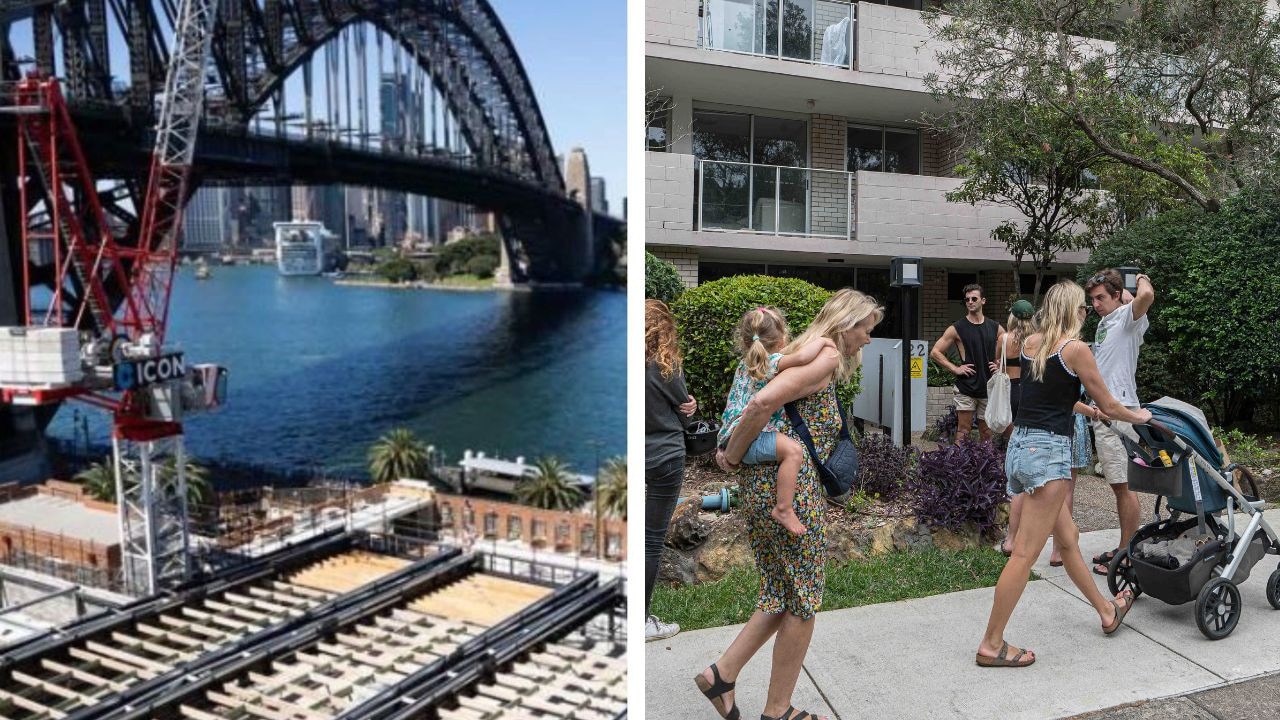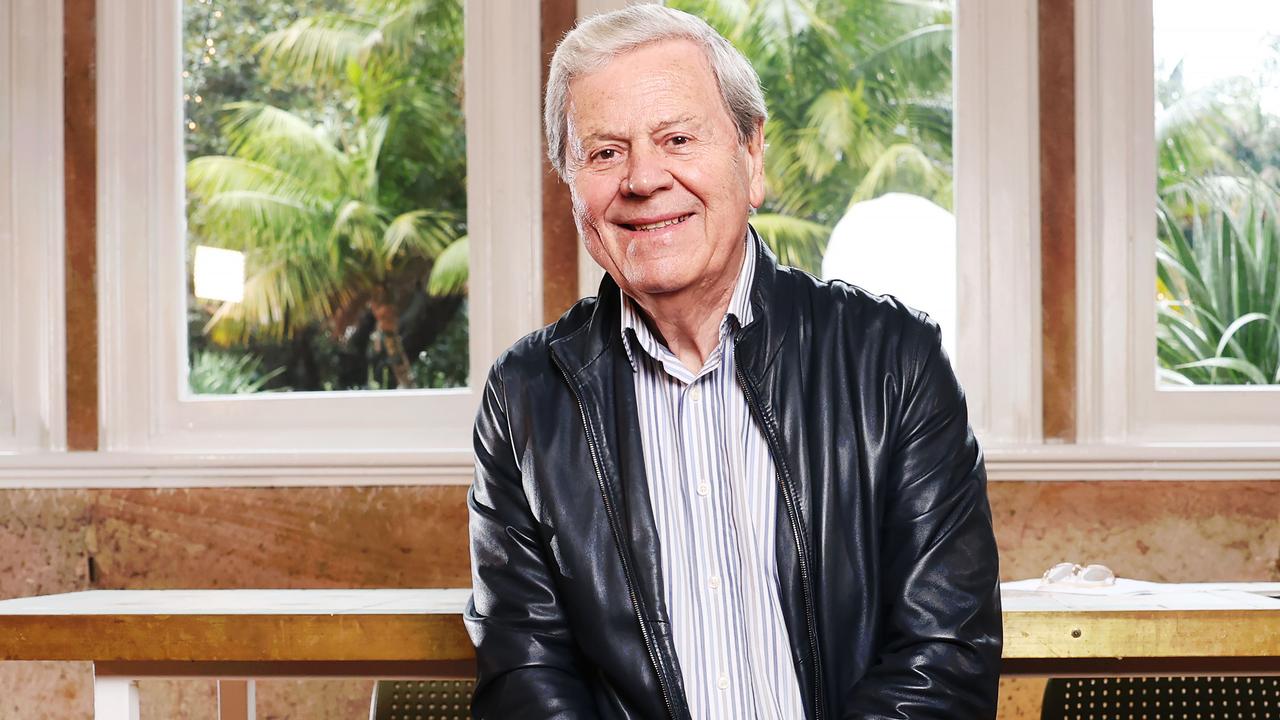Local Ukrainians dig deep to help families on the front line back home
Connections to Ukraine run deep in Australia. We meet some of the extraordinary Sydneysiders who are helping to ease suffering in the war-torn nation.
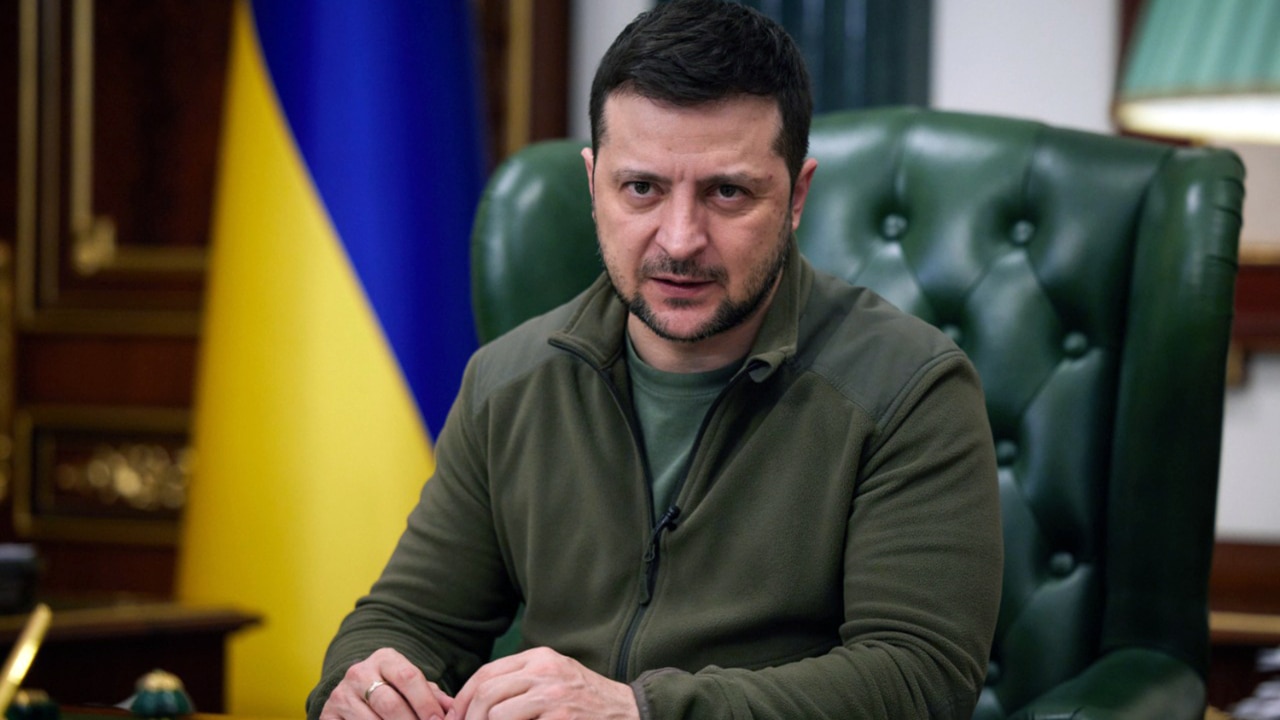
Mosman
Don't miss out on the headlines from Mosman. Followed categories will be added to My News.
For many, watching graphic scenes of the Russian invasion of Ukraine on the nightly news is alarming. But for Ukrainian Australians it is hell.
Up to 50,000 Ukrainians live here, mainly in Sydney and Melbourne. But add to this the children, grandchildren and in-laws of Ukrainian-born Australians and the number of people with a deep personal connection to the conflict swells.
For centuries Russian elites and intellectuals held a “one people” view of Ukraine, seeing themselves as the big brother. But many Ukrainians, even those who are Russian-speaking, don’t return the compliment, seeing Russia as a bully.
On the west side, which speaks Ukrainian, the people identify as European. In the east, many see themselves as both Ukrainian and Russian, speaking Russian and feeling varying degrees of connection to that vast empire. Also on this side are areas in the Donbas region, recently populated with Russians, that have backed Russian separatist movements.
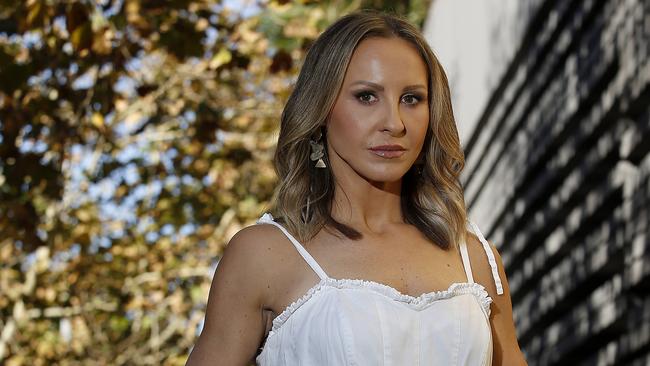
Ukraine was absorbed into communist USSR when that state was formed in 1922, something many Ukrainians loathed. When Ukrainians were displaced by World War II, many could not go back, and a number came to Australia as refugees.
All have watched the chess play, as Russian-identifying Crimea was gifted to Ukraine in 1954, then seized back by Russian President Vladimir Putin in 2014, with a pro-Russian Ukrainian president, now charged with treason, watching on.
And now all feel betrayed by Putin’s invasion, including many previously loyal to Russia.
So, yes, the complexity of the Ukrainian-Russian relationship is hard to fathom – but not the pain of the February invasion.
Samantha Dybac of Potts Point is a proud third-generation Australian. Her four Ukrainian grandparents migrated to Sydney after WWII as refugees. Both her parents were born in Sydney, meeting as teenagers.
“When I told people my family were Ukrainian they would say ‘oh, you’re Russian’. It was impossible to explain the important difference between my family’s heritage. So I’d let it go,” Samantha explains.
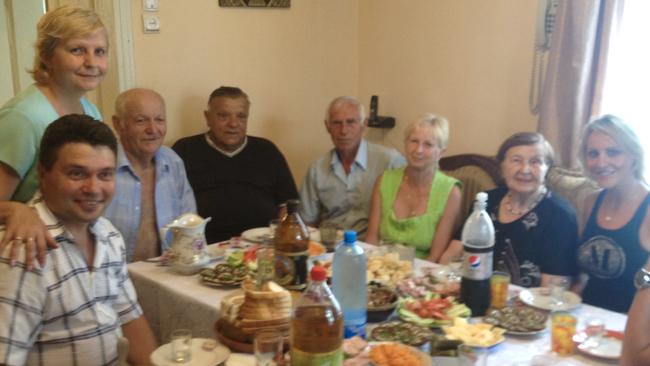
One of her “babas” (grandmothers), Polina Czerwaniw, shared with her stories of the 1930s Holodomor, when Stalin manipulated grain supplies against his enemies and four million Ukrainians starved. At that time Polina’s father could have faced a firing squad for taking food but he risked his life, stealing horse biscuits to feed his family.
“Baba’s first memories were far from what you would hope someone would remember from their childhood – famine, terror, struggle for survival and death,” Samantha explained when she gave Polina’s eulogy just over two years ago.
Samantha had a typical Sydney upbringing, attending Ukrainian school on Saturdays and Ukrainian dancing on Tuesdays with her three younger siblings – often taken there by their late “dido” (grandfather).
At Easter, baskets of traditional foods were taken to the Ukrainian Orthodox Church to be blessed by the priests – one of whom happened to be her grandfather, the Very Rev Basil Czerwaniw.
When older, Samantha had the Ukrainian tryzub tattooed on the outside of her ankle, then the word “Ukraine” along with her mother’s maiden name and her father’s name, her surname, on her back in the Ukrainian alphabet, a variant of the Cyrillic script.
She has visited Ukraine several times and sometimes stayed with relatives, enjoying the customs and traditions – and practising her Ukrainian, vowing to return.
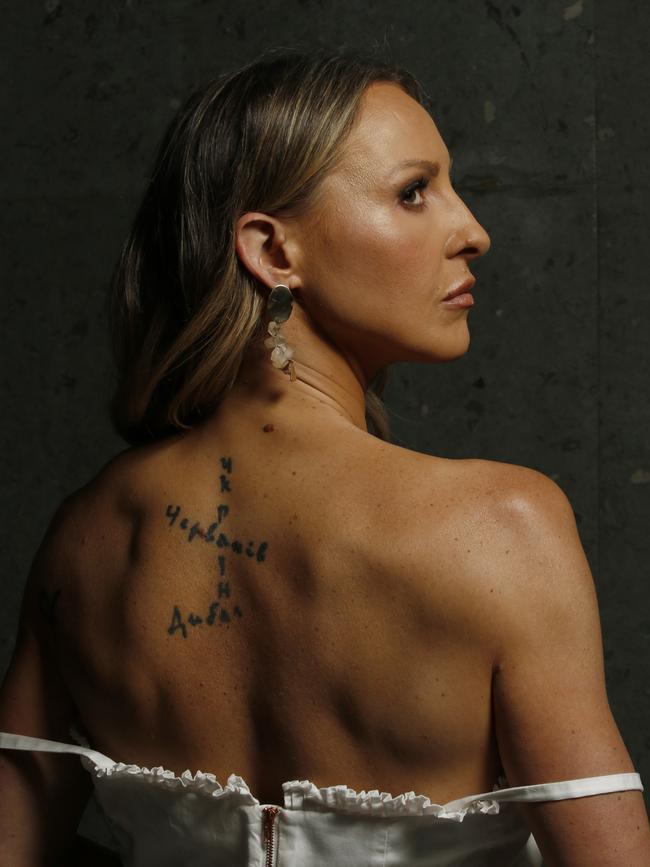
“My Ukrainian family are so beautiful. All the family would fight over who would have us there for breakfast, lunch and dinner. Many of them live in small farming villages. They don’t have a lot by Western standards. But they are caring, strong and stoic. I feel so proud to share that heritage.”
Today, Samantha has social media contact with Ukrainian friends and family, suffering as homes are bombed, futures threatened and hopes destroyed.
“It’s hard to ask them how they are when you know they could be killed by a bomb tonight and you will sleep soundly,” she says.
“How do you say ‘Can I help you?’ when you feel completely helpless? What can we do from here?”
But Samantha’s now converting helplessness into action, donating to charities and using her public relations skills to galvanise support for Ukraine.
Distinguished Rose Bay-based musician Vladimir Fanshil has just returned from conducting Opera Australia’s Field of Light concert at Uluru.
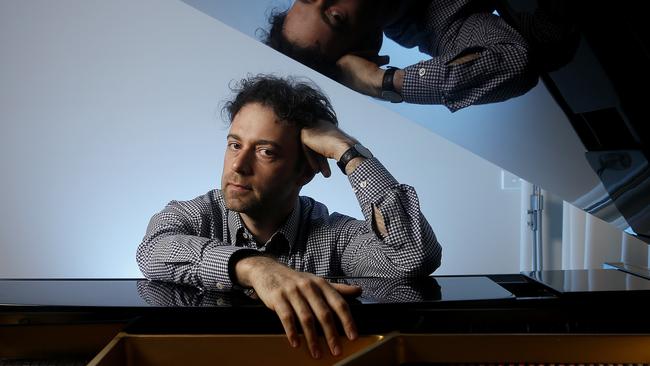
He studied, lives and works across Australia, Europe, Ukraine and Russia. He recently conducted the Konzerthaus Orchestra of Berlin, the Odessa National Philharmonic of Ukraine and is frequently a guest conductor with the Mariinsky Theatre Orchestra, the most famous theatre in Russia.
Vladimir’s family is from the port city of Odessa on the Black Sea, so Russian speaking. Vladimir was also born there when it was part of the USSR, migrating to Australia as a child when it disintegrated.
Odessa, “the pearl of the Black Sea”, is a porous place where Ukrainian, Russian and Yiddish languages are all heard.
“They are a people with a shared history. And that is what’s so distressing about this. Odessa has always been a place of holiday and inspiration for Russians,” Vladimir says.
“Many of Russia’s most distinguished musicians were born in Ukraine, Ukrainian and vice versa. Pushkin, the father of the Russian language, lived in Odessa for two years. The composer Prokofiev was Ukrainian born and was said to have brought his sunshine to St Petersburg when he went there to study. Tchaikovsky took many holidays in Ukraine and Ukrainian folk music is prevalent in his compositions.
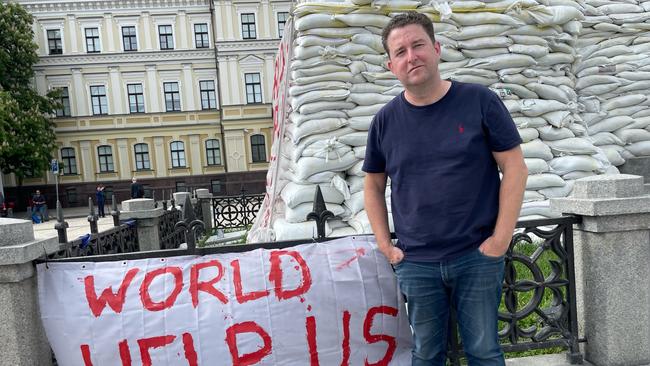
“And I’d say nine out of 10 of the people I know in Russia – musicians, artists, actors – none would support this atrocious war.
“The grief works at two levels. The first is as a human, to see war in 2022 instead of diplomacy. And then there are the personal connections, so many people we are close to, who we speak to every night who have had their peaceful lives stripped away from them.
“The most painful moment recently was seeing a video of a rocket flying into a civilian building in Odessa, my home city.
“A young family was killed, a three-month-old, her mother and grandmother. I just became numb. This is not something one can comprehend.”
Vladimir’s children’s nanny recently returned to her home city, Kharkiv.
“Kharkiv is a Russian-speaking city. They speak the same language as the invaders. They weren’t anti-Russian until this.
“One minute she was looking after our baby and upon return she had to move into a basement, being shelled every day. Now they’ve moved into a safer rural town and live in a kindergarten with 17 other families, sharing one kitchen and bathroom.”
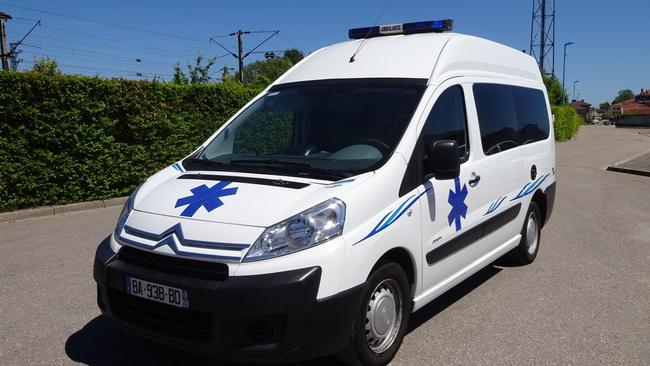
Vladimir has organised and hosted a number of charity concerts in support of Ukraine and is now arranging for Ukrainian pianist Alexey Botvinov, recently exiled to Germany, to come to Australia in September. His fundraising musical activities and cultural exchange will include concerts and masterclasses.
Sydney businessman and North Sydney councillor James Spenceley drove into Ukraine to personally hand over two ambulances he purchased, making sure they got to where they were needed.
His wife Viktoriia is Ukrainian, so he knows the communities he has promised to help.
James has also stocked up on sleeping bags for soldiers sleeping out.
Each fully equipped ambulance costs about $30,000 and can save up to five lives a day.
Further crowdfunding at ausukraineaid.org, including a $50,000 donation from a retired couple in regional NSW that brought James to tears, has enabled him to buy eight more.
He is seeing more devastation than he expected: “The mood is quiet and people are subdued. They are still in shock.”
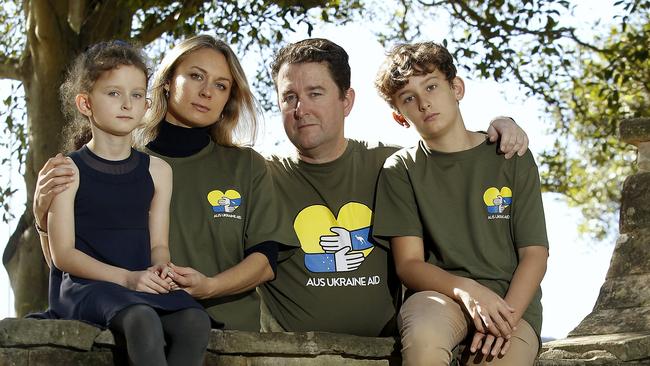
“In Bucha, I spoke with a man who had a gun pointed at his head for seven days by the Russians and then was ordered to bury 67 of his townsfolk in a mass grave.”
“In Kyiv many of the petrol stations were blown up. Maybe one out of 15 were open and had fuel. At these there were queues of hundreds of cars.”
After leaving Kyiv, James and his team travelled halfway to Russian-controlled Melitopol to deliver another ambulance.
The people he handed the ambulance over to presented him with a plaque they’d had made to thank him.
“I was so moved,” James says, apparently not seeing just how moving and extraordinary his own gesture is.
But then of course to him it is not a gesture, it is simply human – and family – connection.

